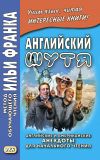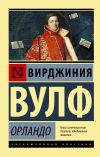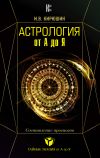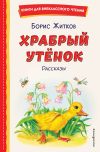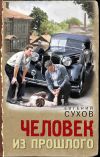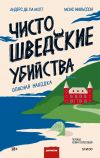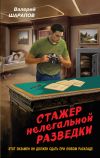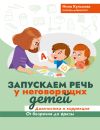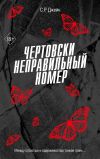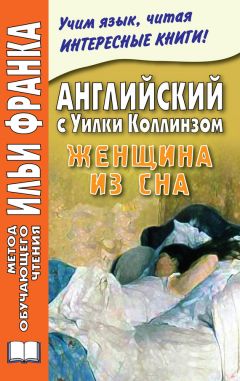
Автор книги: Уильям Коллинз
Жанр: Иностранные языки, Наука и Образование
Возрастные ограничения: +16
сообщить о неприемлемом содержимом
Текущая страница: 5 (всего у книги 16 страниц) [доступный отрывок для чтения: 5 страниц]
I watched the cards as I was told (я следил за картами, как мне сказали). There were seven left on the table (на столе осталось семь /карт/). My aunt removed two from one end of the row and two from the other (тетушка убрала две с одного края /ряда/ и две с другого), and desired me to call the two outermost of the three cards now left on the table (и хотела, чтобы я назвал две крайние из трех карт, которые теперь остались на столе). I called the Ace of Clubs and the Ten of Diamonds (я назвал трефового туза и бубновую десятку; club – дубинка; булава; clubs – /карт./ трефы, трефовая масть).

I was thinking of the groom’s place at the great house, and I tried to say so. My aunt Chance wouldn’t listen. She treated my interpretation with contempt. “Hoot-toot! there’s the caird in your hand! If ye’re no thinking of her the day, ye’ll be thinking of her the morrow. Where’s the harm of thinking of a dairk woman! I was ance a dairk woman myself, before my hair was gray. Haud yer peace, Francie, and watch the cairds.”
I watched the cards as I was told. There were seven left on the table. My aunt removed two from one end of the row and two from the other, and desired me to call the two outermost of the three cards now left on the table. I called the Ace of Clubs and the Ten of Diamonds.
My aunt Chance lifted her eyes to the ceiling with a look of devout gratitude (тетушка Чанс подняла глаза к потолку с видом искренней благодарности = с самым благодарным видом; devout – набожный, религиозный; искренний, сердечный) which sorely tried my mother’s patience (который жестоко испытывал терпение моей матушки; sorely – жестоко, мучительно; крайне, очень; sore – рана, язва; болезненный; крайний, острый). The Ace of Clubs and the Ten of Diamonds, taken together, signified (трефовый туз и бубновая десятка, взятые вместе, означали) – first, good news (evidently the news of the groom’s place) (во-первых, хорошее известие /очевидно, о месте грума/; news – новость, известие, весть); secondly, a journey that lay before me (pointing plainly to my journey tomorrow!) (во-вторых, путешествие, лежащее передо мной = предстоящую дорогу /ясно указывая на мое путешествие завтра!/; second – второй); thirdly and lastly, a sum of money (probably the groom’s wages!) waiting to find its way into my pockets (в-третьих и последних, сумму денег /вероятно, жалованье конюха!/, ожидающую найти свой путь в мои карманы = деньги, которые скоро наполнят мои карманы; wages – заработная плата /рабочих/). Having told my fortune in these encouraging terms (предсказав мою судьбу в этих ободряющих выражениях; to encourage – ободрять; воодушевлять; term – термин; выражение), my aunt declined to carry the experiment any further (тетушка отказалась проводить этот опыт дальше; to decline – опускаться; отклонять, отвергать отказываться; to carry – нести; вести, проводить; experiment – опыт, эксперимент).

My aunt Chance lifted her eyes to the ceiling with a look of devout gratitude which sorely tried my mother’s patience. The Ace of Clubs and the Ten of Diamonds, taken together, signified – first, good news (evidently the news of the groom’s place); secondly, a journey that lay before me (pointing plainly to my journey tomorrow!); thirdly and lastly, a sum of money (probably the groom’s wages!) waiting to find its way into my pockets. Having told my fortune in these encouraging terms, my aunt declined to carry the experiment any further.
“Eh, lad (нет, парень; lad – мальчик, юноша, парень)! it’s a clean tempting o’ Proavidence to ask mair o’ the cairds than the cairds have tauld us noo (= it’s a clean tempting of Providence to ask more of the cards than the cards have told us now. – Это чистое искушение провидения – просить от карт больше, чем они нам уже рассказали; to tempt – соблазнять, искушать; испытывать, искушать /судьбу/). Gae yer ways tomorrow to the great hoose (иди /своим путем/ завтра в этот большой дом; gae = go; hoose = house). A dairk woman will meet ye at the gate (брюнетка встретит тебя у ворот); and she’ll have a hand in getting ye the groom’s place (и поможет тебе получить место конюха; to have a hand in smth. – участвовать в чем-л., приложить руку к чему-л., вмешаться куда-л.), wi’ a’ the gratifications and pairquisites appertaining to the same (со всеми чаевыми и дополнительными доходами, присущими этому месту; wi’ a’ = with all; to gratify – удовлетворять; доставлять удовольствие; /уст./ вознаграждать; gratification – удовольствие, наслаждение; вознаграждение; чаевые; perquisite – приработок, случайный доход; привилегия; to appertain to – принадлежать, относиться; входить в компетенцию; same – тот /же/ самый; /канц./ вышеупомянутый). And, mebbe, when yer poaket’s full o’ money (и, быть может, когда твой карман будет полон денег; mebbe = maybe; yer poaket’s = pocket is), ye’ll no’ be forgetting yer aunt Chance (ты не будешь забывать твою тетушку Чанс; ye’ll no’ = you will not), maintaining her ain unblemished widowhood (поддерживающую свое непорочное вдовство; to maintain – поддерживать; содержать; ain = own; unblemished – незапятнанный, неопороченный; to blemish – портить; пятнать, позорить) – wi’ Proavidence assisting – on thratty punds a year (с помощью провидения, на тридцать фунтов в год; thratty punds = thirty pounds)!”
I promised to remember my aunt Chance (я обещал вспомнить о тетушке Чанс) (who had the defect, by the way, of being a terribly greedy person after money) on the next happy occasion (которая, между прочим: «по пути», имела такой порок – была ужасно жадной до денег, – при первом же счастливом случае; defect – дефект, недостаток; порок, изъян; next – следующий; ближайший) when my poor empty pockets were to be filled at last (когда мои бедные пустые карманы наконец-то наполнятся).

“Eh, lad! it’s a clean tempting o’ Proavidence to ask mair o’ the cairds than the cairds have tauld us noo. Gae yer ways tomorrow to the great hoose. A dairk woman will meet ye at the gate; and she’ll have a hand in getting ye the groom’s place, wi’ a’ the gratifications and pairquisites appertaining to the same. And, mebbe, when yer poaket’s full o’ money, ye’ll no’ be forgetting yer aunt Chance, maintaining her ain unblemished widowhood – wi’ Proavidence assisting – on thratty punds a year!”
I promised to remember my aunt Chance (who had the defect, by the way, of being a terribly greedy person after money) on the next happy occasion when my poor empty pockets were to be filled at last.
This done, I looked at my mother (сделав это, я посмотрел на матушку). She had agreed to take her sister for umpire between us (она согласилась выбрать свою сестру в качестве судьи между нами; umpire – посредник, третейский судья), and her sister had given it in my favor (и ее сестра вынесла решение в мою пользу; to give – давать; выносить /решение, приговор/; in smb.’s favor – в чью-л. пользу; favor – благосклонность; любезность, услуга; поддержка). She raised no more objections (она больше не выдвигала возражений; to raise – поднимать; ставить, поднимать /вопрос/; выдвигать /возражение/). Silently, she got on her feet (она молча поднялась: «встала на ноги»), and kissed me (поцеловала меня), and sighed bitterly (горько вздохнула) – and so left the room (и затем вышла из комнаты). My aunt Chance shook her head (тетушка Чанс покачала головой). “I doubt, Francie, yer puir mither has but a heathen notion of the vairtue of the cairds (боюсь, Фрэнси, что твоя бедная мать имеет совершенно дикое представление о силе карт; heathen – языческий; варварский, дикий; to doubt – сомневаться; /уст., диал./ бояться; yer puir mither = your poor mother; vairtue = virtue – добродетель; достоинство, хорошее качество; сила, действенность)!”
By daylight the next morning I set forth on my journey (на рассвете следующим утром я отправился в путь; daylight – дневной свет; рассвет, заря; forth – вперед, дальше). I looked back at the cottage as I opened the garden gate (я оглянулся на домик, когда открыл садовую калитку; garden – сад; gate – ворота; калитка).

This done, I looked at my mother. She had agreed to take her sister for umpire between us, and her sister had given it in my favor. She raised no more objections. Silently, she got on her feet, and kissed me, and sighed bitterly – and so left the room. My aunt Chance shook her head. “I doubt, Francie, yer puir mither has but a heathen notion of the vairtue of the cairds!”
By daylight the next morning I set forth on my journey. I looked back at the cottage as I opened the garden gate.
At one window was my mother (в одном окне была моя матушка), with her handkerchief to her eyes (с платком у глаз; handkerchief – носовой или шейный платок). At the other stood my aunt Chance (в другом стояла тетушка Чанс), holding up the Queen of Spades by way of encouraging me at starting (показывая пиковую даму, чтобы ободрить меня в начале /пути/; to start – начинать/ся/; отправляться в путь). I waved my hands to both of them in token of farewell (я помахал руками им обеим на прощание; in token of – в знак /чего-л./; farewell – прощание; to fare – жить; /уст./ путешествовать, ехать), and stepped out briskly into the road (и быстро вышел на дорогу; to step out – выходить; быстро шагать; ступать большими шагами; brisk – живой, проворный). It was then the last day of February (тогда был последний день февраля). Be pleased to remember, in connection with this (вспомните, пожалуйста: «будьте добры вспомнить», в связи с этим; to connect – связывать, соединять/ся/), that the first of March was the day (что первого марта был день), and two o’clock in the morning the hour of my birth (а два часа утра – час моего рождения).

At one window was my mother, with her handkerchief to her eyes. At the other stood my aunt Chance, holding up the Queen of Spades by way of encouraging me at starting. I waved my hands to both of them in token of farewell, and stepped out briskly into the road. It was then the last day of February. Be pleased to remember, in connection with this, that the first of March was the day, and two o’clock in the morning the hour of my birth.
V
Now you know how I came to leave home (теперь вы знаете, как случилось, что я ушел из дома). The next thing to tell is, what happened on the journey (следующее: «следующей вещью», о чем я расскажу, – что случилось во время путешествия).
I reached the great house in reasonably good time considering the distance (я добрался до большого дома за довольно хорошее время = довольно быстро, учитывая расстояние; reasonably – разумно; рассудительно; умеренно; довольно, достаточно; reason – разум, рассудок; благоразумие). At the very first trial of it (при самом первом испытании; trial – испытание, проба), the prophecy of the cards turned out to be wrong (предсказание карт оказалось неверным; prophecy – предсказание, пророчество; to turn out – выворачивать /карманы и т. д./; оказаться, обнаружиться). The person who met me at the lodge gate was not a dark woman (человек, который встретил меня у ворот, не был брюнеткой; person – человек; личность; особа; lodge gate – ворота в парк; въезд /в поместье и т. д./; lodge – домик привратника, сторожка /при въезде в парк, поместье/) – in fact, not a woman at all – but a boy (более того, это вообще была не женщина, а мальчик). He directed me on the way to the servants’ offices (он показал мне дорогу в людскую; to direct – направлять; показывать дорогу; servant – слуга; служанка; прислуга; office – офис, контора; служебное помещение; offices – подсобные помещения); and there again the cards were all wrong (и опять же карты совсем ошиблись). I encountered, not one woman, but three (я встретил не одну женщину, а три; to encounter – /неожиданно/ встретиться, столкнуться /с кем-л./) – and not one of the three was dark (и ни одна из трех не была брюнеткой). I have stated that I am not superstitious, and I have told the truth (я уже говорил, что я не суеверен, и я сказал правду; to state – заявлять, утверждать).

Now you know how I came to leave home. The next thing to tell is, what happened on the journey.
I reached the great house in reasonably good time considering the distance. At the very first trial of it, the prophecy of the cards turned out to be wrong. The person who met me at the lodge gate was not a dark woman – in fact, not a woman at all – but a boy. He directed me on the way to the servants’ offices; and there again the cards were all wrong. I encountered, not one woman, but three – and not one of the three was dark. I have stated that I am not superstitious, and I have told the truth.
But I must own that I did feel a certain fluttering at the heart (однако должен признаться, что я действительно испытал некоторое волнение в сердце = сердце мое весьма заколотилось; did – зд. для усиления; fluttering – трепетание; дрожание; to flutter – бить крыльями, перепархивать; трепетать; волноваться; неровно биться /о сердце/) when I made my bow to the steward (когда поклонился: «сделал поклон» управляющему; steward – управляющий /крупным хозяйством, имением/), and told him what business had brought me to the house (и рассказал ему, какое дело привело меня в этот дом). His answer completed the discomfiture of aunt Chance’s fortune-telling (его ответ завершил поражение предсказания тетушки Чанс; discomfiture – расстройство, крушение планов; to discomfit – расстраивать, разрушать /планы/). My ill-luck still pursued me (невезение все еще преследовало меня; ill-luck – невезение, неудача; несчастье). That very morning another man had applied for the groom’s place, and had got it (в то самое утро другой человек изъявил желание занять место конюха и получил его; to apply – обращаться с просьбой; подавать заявление /о приеме на работу, в учебное заведение и т. д./).
I swallowed my disappointment as well as I could (я подавил разочарование, как мог; to swallow – глотать; терпеть; подавлять, сдерживать), and thanked the steward (поблагодарил управляющего), and went to the inn in the village to get the rest and food (и пошел в гостиницу в деревне, чтобы получить отдых и пищу) which I sorely needed by this time (в которых очень нуждался к этому времени).

But I must own that I did feel a certain fluttering at the heart when I made my bow to the steward, and told him what business had brought me to the house. His answer completed the discomfiture of aunt Chance’s fortune-telling. My ill-luck still pursued me. That very morning another man had applied for the groom’s place, and had got it.
I swallowed my disappointment as well as I could, and thanked the steward, and went to the inn in the village to get the rest and food which I sorely needed by this time.
Before starting on my homeward walk I made some inquiries at the inn (прежде чем отправиться в обратный путь, я навел справки в гостинице; homeward – идущий, ведущий к дому; обратный /о пути/; walk – ходьба; прогулка пешком; inquiry – вопрос; запрос; наведение справок), and ascertained that I might save a few miles, on my return, by following a new road (и выяснил, что могу сэкономить несколько миль по возвращении = на обратном пути, пойдя другой дорогой; to save – спасать; беречь, экономить; new – новый; иной, другой).
Furnished with full instructions, several times repeated (снабженный подробными указаниями, несколько раз повторенными; to furnish – снабжать; предоставлять; full – полный, исчерпывающий), as to the various turnings I was to take (относительно различных поворотов, которые я должен пройти = насчет того, где мне сворачивать; various – различный, разный; turning – поворот /дороги, улицы/; to take turning – поворачивать), I set forth, and walked on till the evening (я отправился в путь и шел до вечера; to walk on – идти вперед; продолжать идти) with only one stoppage for bread and cheese (сделав только одну остановку чтобы /поесть/ хлеба с сыром). Just as it was getting toward dark (едва стало темнеть; to get – доставать; добывать; становиться), the rain came on and the wind began to rise (как пошел дождь и начал подниматься ветер; to come on – наступать; начаться, разразиться /о ветре, шторме и т. д./); and I found myself, to make matters worse, in a part of the country (и я обнаружил себя, чтобы сделать дела хуже = и в довершение всех бед я оказался в местах: «в части местности») with which I was entirely unacquainted (с которыми был совершенно незнаком; acquainted – знакомый /с чем-л./; to acquaint – знакомить), though I guessed myself to be some fifteen miles from home (хотя по моим оценкам находился милях в пятнадцати от дома; to guess – гадать, догадываться; приблизительно определять).

Before starting on my homeward walk I made some inquiries at the inn, and ascertained that I might save a few miles, on my return, by following a new road.
Furnished with full instructions, several times repeated, as to the various turnings I was to take, I set forth, and walked on till the evening with only one stoppage for bread and cheese. Just as it was getting toward dark, the rain came on and the wind began to rise; and I found myself, to make matters worse, in a part of the country with which I was entirely unacquainted, though I guessed myself to be some fifteen miles from home.
The first house I found to inquire at, was a lonely roadside inn (первый дом, который я нашел = куда вошел, чтобы спросить дорогу, оказался одинокой придорожной гостиницей; to inquire – спрашивать, узнавать; наводить справки; roadside – обочина, придорожная полоса), standing on the outskirts of a thick wood (стоящей на опушке густого леса; outskirts – окраина, предместья /города/; опушка /леса/; thick – толстый; густой, частый). Solitary as the place looked (как бы мрачно ни выглядело это место; solitary – одиночный, отдельный; заброшенный, уединенный), it was welcome to a lost man (оно было желанно для заблудившегося человека; welcome – желанный, приятный; долгожданный; lost – потерянный; заблудившийся; to lose – терять; потеряться) who was also hungry (который также был голоден; hunger – голод), thirsty (испытывал жажду; thirsty – испытывающий жажду; thirst – жажда), footsore (стер ноги; footsore – со стертыми ногами; sore – болезненный, больной), and wet (и промок; wet – мокрый, промокший). The landlord was civil and respectable-looking (хозяин был вежлив и почтенного вида; civil – гражданский; воспитанный, вежливый); and the price he asked for a bed was reasonable enough (а цена, которую он запросил за кровать, была достаточно умеренна; reasonable – разумный; обоснованный; приемлемый, умеренный /о цене/). I was grieved to disappoint my mother (меня расстраивало то, что я огорчу матушку; to grieve – огорчать, печалить; горевать; to disappoint – разочаровывать, не оправдывать надежд). But there was no conveyance to be had (но экипажей не было; conveyance – перевозка; транспортное средство; to convey – перевозить, переправлять), and I could go no farther afoot that night (а идти дальше пешком в тот вечер я не мог; afoot – в движении; пешком). My weariness fairly forced me to stop at the inn (моя усталость просто заставила меня остановиться в гостинице; weary – усталый, изможденный; fairly – довольно, в некоторой степени; /усил./ совершенно, весьма; to force – заставлять, принуждать; force – сила; насилие, принуждение).
I may say for myself that I am a temperate man (могу сказать о себе, что я человек умеренный). My supper simply consisted of some rashers of bacon (мой ужин состоял всего из нескольких тонких ломтиков бекона; simply – просто; скромно; только; rasher – тонкий ломтик бекона или ветчины), a slice of home-made bread (ломтя домашнего: «сделанного дома» хлеба; slice – ломтик, ломоть), and a pint of ale (и пинты эля; pint – пинта /мера объема жидких и сыпучих тел = 0,57 л/).

The first house I found to inquire at, was a lonely roadside inn, standing on the outskirts of a thick wood. Solitary as the place looked, it was welcome to a lost man who was also hungry, thirsty, footsore, and wet. The landlord was civil and respectable-looking; and the price he asked for a bed was reasonable enough. I was grieved to disappoint my mother. But there was no conveyance to be had, and I could go no farther afoot that night. My weariness fairly forced me to stop at the inn.
I may say for myself that I am a temperate man. My supper simply consisted of some rashers of bacon, a slice of home-made bread, and a pint of ale.
I did not go to bed immediately after this moderate meal (я не пошел спать сразу же после этой скромной пищи), but sat up with the landlord, talking about my bad prospects (а сидел с хозяином, говоря о моих скверных видах на будущее; to sit up – не ложиться спать; засиживаться допоздна; prospect – вид; перспектива, виды на будущее) and my long run of ill-luck (и затянувшемся невезении; long run – длительный период времени), and diverging from these topics to the subjects of horse-flesh and racing (и от этих тем мы перешли к лошадям и скачкам; to diverge – расходиться /о лучах и т. д./; отклоняться, отходить; topic – тема, предмет обсуждения; subject – предмет, тема /разговора/; horse-flesh – конина; /собир./ лошади, кони; flesh – тело; мясо). Nothing was said, either by myself, my host (ничего /такого/ не было сказано ни мной, ни хозяином; host – хозяин /принимающий гостя/; хозяин гостиницы, постоялого двора), or the few laborers who strayed into the tap-room (ни редкими рабочими, которые забредали в пивную; few – немногие, незначительное количество; laborer – неквалифицированный рабочий; labor – /физический/ труд; to stray – заблудиться, сбиться с пути; tap-room – бар, пивная; tap – затычка, пробка; сорт, марка /пива, вина/; room – комната; зал), which could, in the slightest degree, excite my mind (что могло в малейшей степени взволновать/взбудоражить мой ум; slight – слабый, незначительный), or set my fancy – which is only a small fancy at the best of times (или заставить мое воображение – которое всего лишь маленькое воображение в лучшие из времен = и так-то бледное; to set – ставить, помещать; приводить в какое-л. состояние; at the best of times – при благоприятном стечении обстоятельств, даже в лучшие времена) – playing tricks with my common sense (сыграть шутки с моим здравым смыслом; trick – обман; шутка, шалость, выходка; common sense – здравый смысл, практический ум: «общее чувство» /по средневековым представлениям, здравый смысл – то общее, что свойственно всем пяти чувствам/; sense – чувство, ощущение; разум; здравый смысл).
At a little after eleven the house was closed (чуть позже одиннадцати дом был закрыт). I went round with the landlord, and held the candle (я с хозяином обошел /гостиницу/, держа свечу) while the doors and lower windows were being secured (пока запирались двери и нижние окна; to secure – защищать, обеспечивать безопасность; закреплять; запирать /дверь/). I noticed with surprise the strength of the bolts, bars, and iron-sheathed shutters (я отметил с удивлением прочность засовов, решеток и обитых железом ставень; to notice – замечать, отмечать; strength – сила; прочность; крепость; bar – брусок; прут; bars – решетка /на окне/; to sheathe – вкладывать в ножны; обшивать /досками, листами/).

I did not go to bed immediately after this moderate meal, but sat up with the landlord, talking about my bad prospects and my long run of ill-luck, and diverging from these topics to the subjects of horse-flesh and racing. Nothing was said, either by myself, my host, or the few laborers who strayed into the tap-room, which could, in the slightest degree, excite my mind, or set my fancy – which is only a small fancy at the best of times – playing tricks with my common sense.
At a little after eleven the house was closed. I went round with the landlord, and held the candle while the doors and lower windows were being secured. I noticed with surprise the strength of the bolts, bars, and iron-sheathed shutters.
“You see, we are rather lonely here,” said the landlord (видите ли, мы весьма уединенны здесь = место довольно уединенное, – сказал хозяин). “We never have had any attempts to break in yet (пока еще ни разу не делали попыток вломиться к нам: «мы не имели попыток к нам вломиться»; to break in – врываться, вламываться; to break – ломать/ся/, разрушать/ся/), but it’s always as well to be on the safe side (но осторожность никогда не помешает: «всегда также хорошо быть на безопасной стороне»; be on the safe side – на всякий случай, для большей верности). When nobody is sleeping here (когда никто /из постояльцев/ здесь не спит), I am the only man in the house (я единственный мужчина в доме). My wife and daughter are timid (жена и дочь трусихи; timid – застенчивый; робкий; трусливый), and the servant girl takes after her missuses (и служанка следует их примеру; servant girl – служанка; горничная; girl – девочка; девушка; служанка; to take after – походить на кого-л.; следовать примеру; missus = missis – миссис; госпожа, хозяйка). Another glass of ale, before you turn in (еще стаканчик эля перед тем, как пойдете спать; glass – стекло; стакан, бокал, рюмка; to turn in – /разг./ лечь спать)? – No! – Well, how such a sober man as you comes to be out of a place (нет! – как же такой непьющий человек вроде вас остается без места; well – ну! /выражает удивление, сомнение, согласие и т. д./; sober – трезвый; умеренный /в употреблении спиртных напитков/; to come to – доходить до; приходить к) is more than I can understand for one (это больше, чем я, например, могу понять = это выше моего понимания; for one – например, что касается /для усил./). – Here’s where you’re to sleep (вот где вы будете спать). You’re the only lodger tonight (сегодня вы единственный постоялец; lodger – жилец, квартирант; постоялец /гостиницы/; tonight – сегодня вечером, сегодня ночью), and I think you’ll say my missus has done her best to make you comfortable (и, думаю, вы скажете = заметите, что моя хозяйка очень постаралась, чтобы вам было уютно; to do one’s best – сделать все возможное, всячески стараться; comfortable – удобный, уютный). You’re quite sure you won’t have another glass of ale (вы точно уверены, что не хотите еще стаканчик эля; quite – вполне, совершенно; sure – уверенный; won’t = will not)? – Very well (очень хорошо). Good night (спокойной ночи).”

“You see, we are rather lonely here,” said the landlord. “We never have had any attempts to break in yet, but it’s always as well to be on the safe side. When nobody is sleeping here, I am the only man in the house. My wife and daughter are timid, and the servant girl takes after her missuses. Another glass of ale, before you turn in? – No! – Well, how such a sober man as you comes to be out of a place is more than I can understand for one. – Here’s where you’re to sleep. You’re the only lodger tonight, and I think you’ll say my missus has done her best to make you comfortable. You’re quite sure you won’t have another glass of ale? – Very well. Good night.”
It was half-past eleven by the clock in the passage (было половина двенадцатого на часах в коридоре) as we went upstairs to the bedroom (когда мы поднялись по лестнице в спальню; upstairs – вверх /по лестнице/; stair – ступенька; stairs – лестница). The window looked out on the wood at the back of the house (окно выходило на лес позади дома; to look out – выглядывать; выходить /на какую-л. сторону/).
I locked my door (я запер дверь), set my candle on the chest of drawers (поставил свечу на комод; chest – ящик; сундук; drawer – выдвижной ящик /стола, комода/; to draw – тянуть/ся/; вытягивать), and wearily got me ready for bed (и устало приготовил себя к кровати = устало разделся и лег на кровать; wearily – утомительно; устало). The bleak wind was still blowing (холодный ветер по-прежнему дул; bleak – открытый ветру; холодный, суровый /о погоде/), and the solemn, surging moan of it in the wood (и его печальный, все нарастающий стон в лесу; solemn – серьезный; торжественный; темный, мрачный /о цвете/; to surge – вздыматься /о волнах/; подниматься; /на/хлынуть; нарастать /о чувстве, звуке/) was very dreary to hear through the night silence (было очень тоскливо слушать сквозь ночную тишину; dreary – грустный, печальный; тоскливый, безрадостный). Feeling strangely wakeful (чувствуя странную бодрость; strangely – странно, необычно; удивительно; wakeful – бодрствующий; бессонный), I resolved to keep the candle alight until I began to grow sleepy (я решил оставить свечу гореть, пока не начну засыпать: «становиться сонным»; alight – зажженный; горящий; to grow – расти; становиться). The truth is, I was not quite myself (правда в том, что я не был вполне собой = по правде сказать, мне было не по себе). I was depressed in mind by my disappointment of the morning (я был подавлен /в душе/ утренним разочарованием; to depress – подавлять; приводить в уныние; to press – нажимать, давить; mind – ум, разум; настроение, состояние духа); and I was worn out in body by my long walk (и ужасно устал физически: «был истощен в теле» длительной ходьбой; to wear out). Between the two, I own I couldn’t face the prospect of lying awake in the darkness (между нами /говоря/, признаюсь, я не мог принять перспективу = примириться с мыслью, что буду лежать без сна в темноте; to face – смело встречать; смотреть в лицо /чему-л./ без страха; awake – бодрствующий, не спящий), listening to the dismal moan of the wind in the wood (слушая заунывный стон ветра в лесу; dismal – мрачный, унылый; печальный, гнетущий).

It was half-past eleven by the clock in the passage as we went upstairs to the bedroom. The window looked out on the wood at the back of the house.
I locked my door, set my candle on the chest of drawers, and wearily got me ready for bed. The bleak wind was still blowing, and the solemn, surging moan of it in the wood was very dreary to hear through the night silence. Feeling strangely wakeful, I resolved to keep the candle alight until I began to grow sleepy. The truth is, I was not quite myself. I was depressed in mind by my disappointment of the morning; and I was worn out in body by my long walk. Between the two, I own I couldn’t face the prospect of lying awake in the darkness, listening to the dismal moan of the wind in the wood.
Sleep stole on me before I was aware of it (сон подкрался ко мне прежде, чем я осознал его = незаметно; aware – знающий, осознающий /что-л./); my eyes closed, and I fell off to rest (глаза закрылись, и я погрузился в сон; to fall off – опадать /о листьях/; падать вниз; rest – покой, отдых; сон), without having so much as thought of extinguishing the candle (даже не подумав о том, чтобы погасить свечу; so much as – хотя бы; даже; to extinguish – гасить, тушить).
Внимание! Это не конец книги.
Если начало книги вам понравилось, то полную версию можно приобрести у нашего партнёра - распространителя легального контента. Поддержите автора!Правообладателям!
Данное произведение размещено по согласованию с ООО "ЛитРес" (20% исходного текста). Если размещение книги нарушает чьи-либо права, то сообщите об этом.Читателям!
Оплатили, но не знаете что делать дальше?